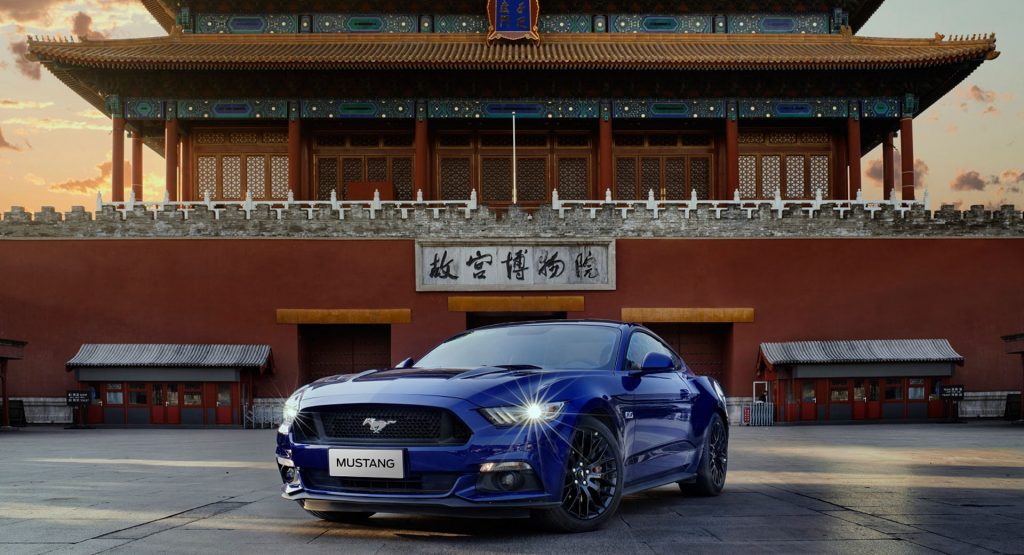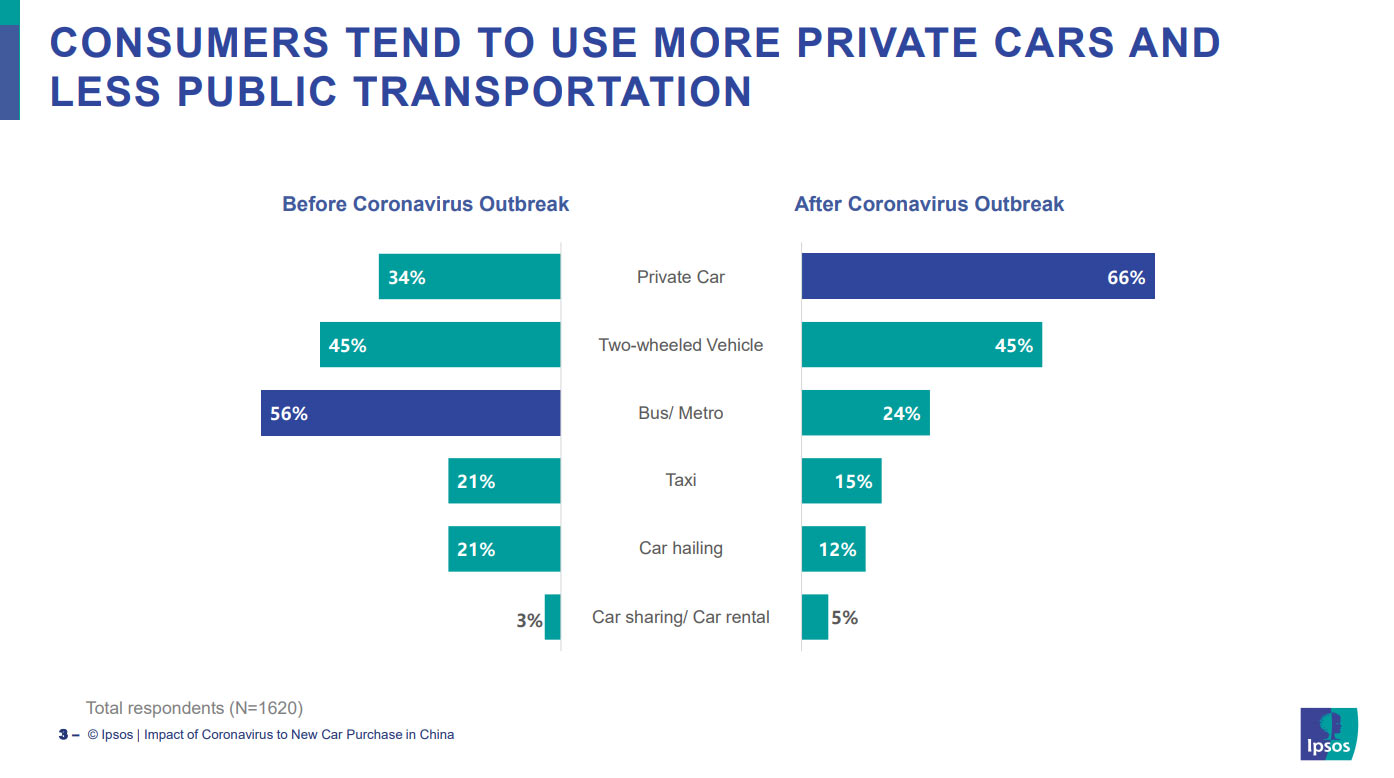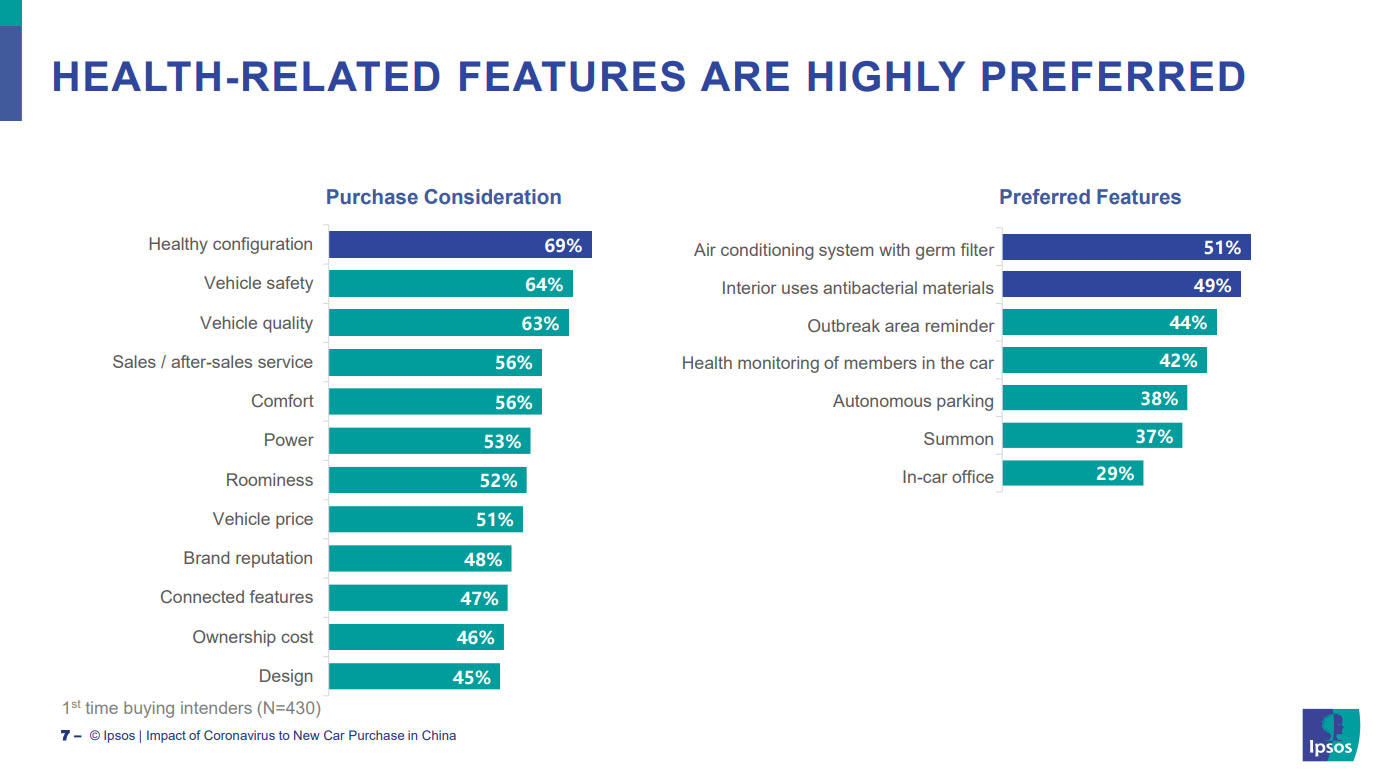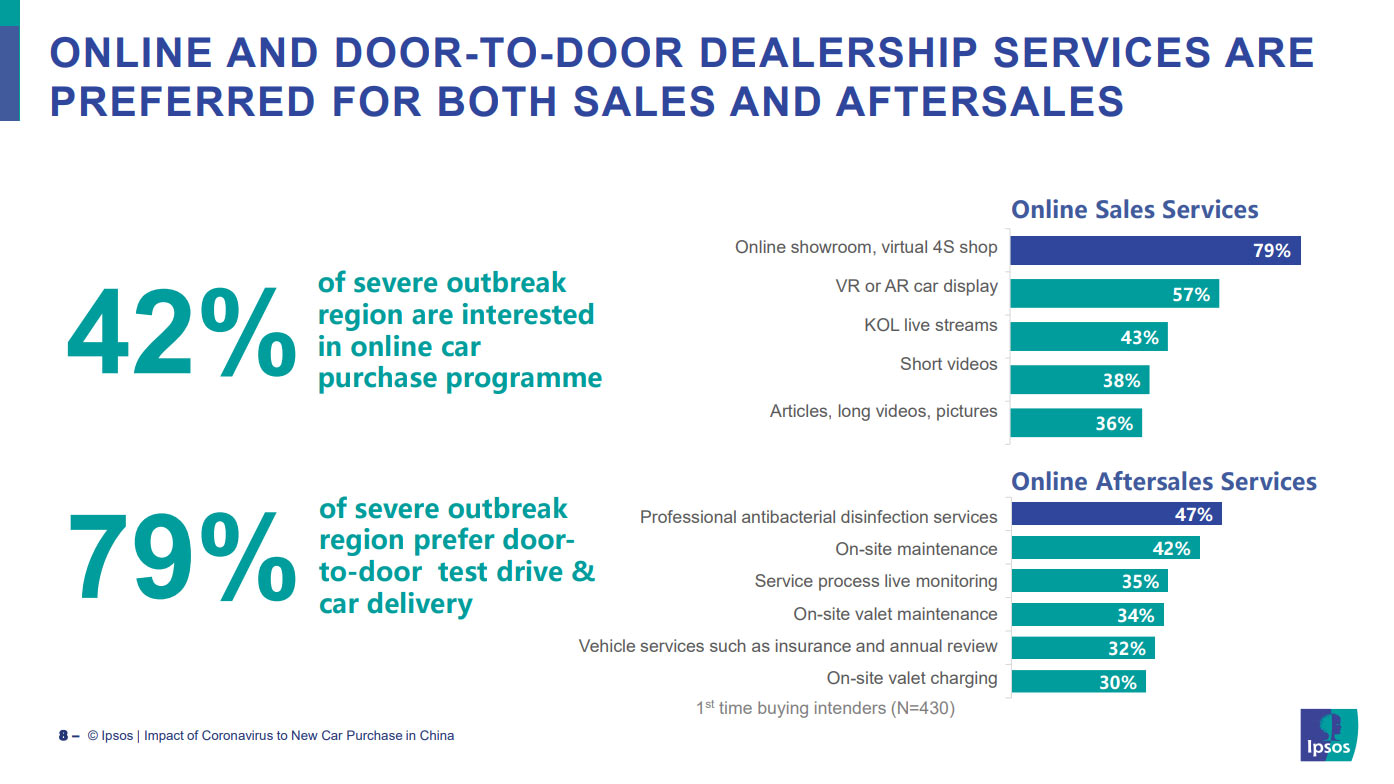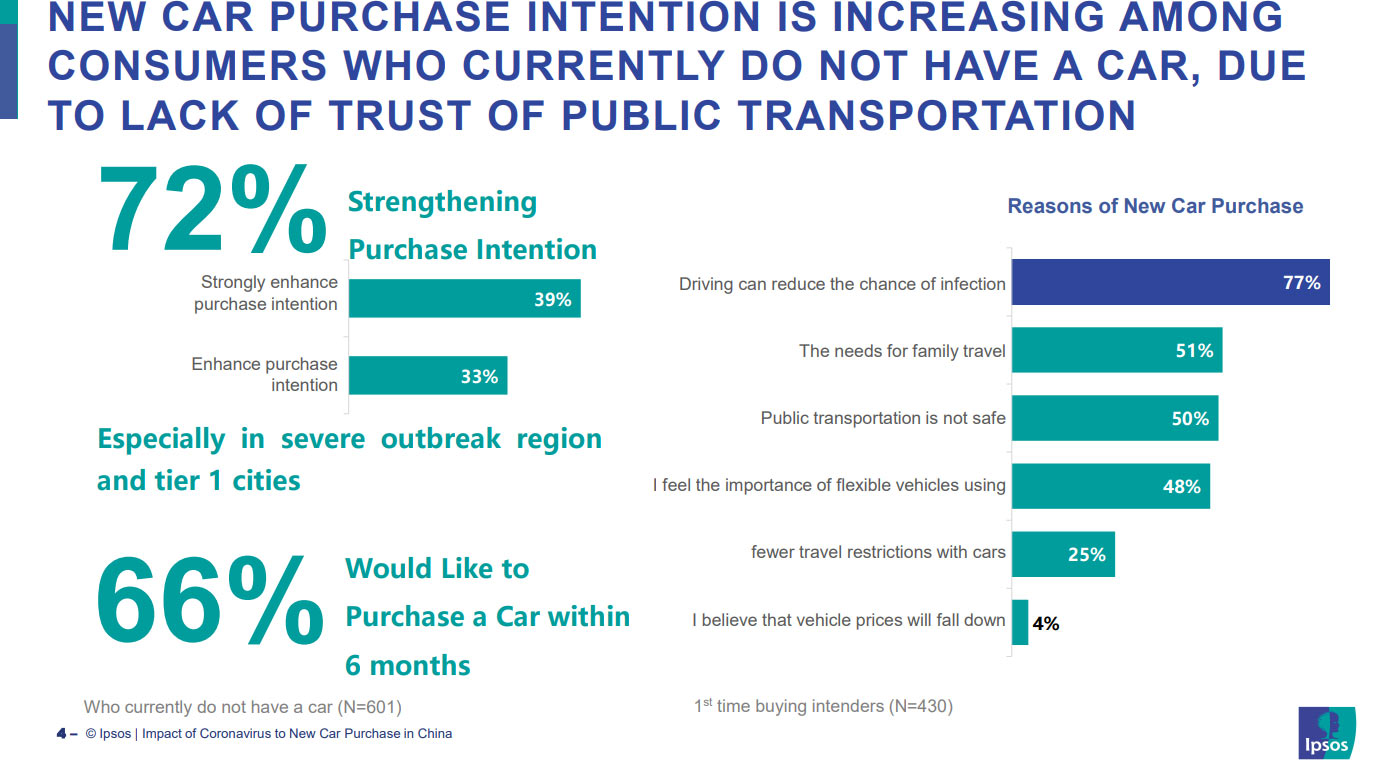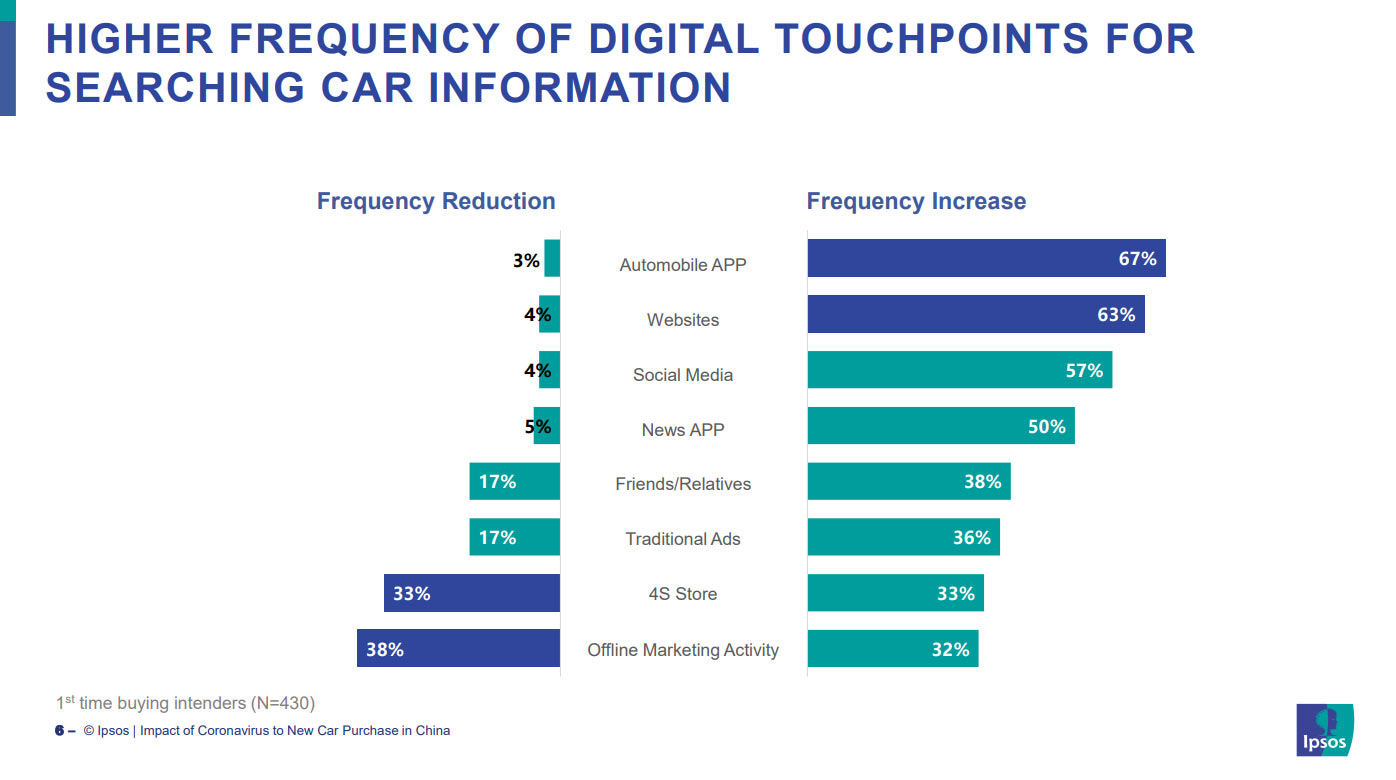With the coronavirus crisis raging in Europe and the United States, a number of people are looking at China to see how the pandemic played out.
Ipsos looked at the virus’ impact on cars in China and it could provide some insights at what to expect in other markets.
The “quick survey” was conducted at the end of last month and it examined how the coronavirus impacted consumer habits. Unsurprisingly, people used public transport less after the outbreak.
Also Read: China’s Car Sales Fell By A Cliff In February, Down By 92 Percent
The number of people taking the bus fell by more than 50%, while there were also declines in the number of people using taxis and rail-hailing services. At the same time, private car usage nearly doubled as many consumers were afraid of catching CONVID-19 from others.
This fear was even seen in people who don’t own a car. Among non-car owners, 66% said they would like to purchase a car within six months. 77% of “1st time buying intenders” also said a reason for wanting a new car was driving can reduce the chance of infection, compared to public transport.
The coronavirus also pushed car shoppers online as they turned to apps, websites and social media. Consumers also began placing an emphasis on “healthy features” such as interiors made with antibacterial materials and climate control systems with a germ filter.
The desire to stay away from crowds also saw car shoppers interested in buying online and test driving vehicles from the comfort of their home.
Given the findings, automakers should probably highlight online sales programs such as the one GM touted earlier this week. When the automaker announced their 0% financing event, they noted customers who are concerned about leaving their home can buy vehicles online – from participating dealerships – and have them delivered.




